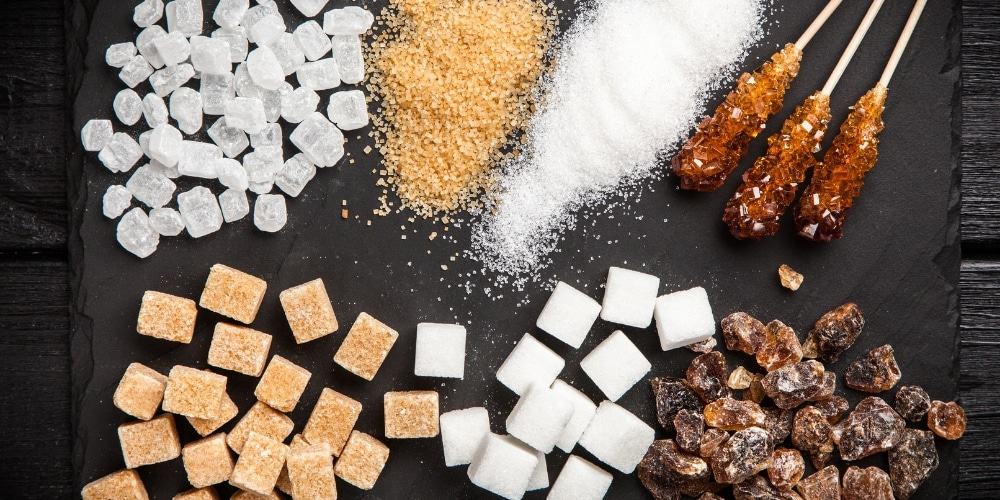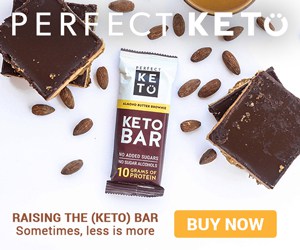Aspartame is the chemical sweetener found in many diet sodas. At first glance, a label with zero calories and zero carbs may look tempting to consume on a keto diet. It’s important to look closer at the ingredients and ask yourself, is aspartame keto?
Is Aspartame Keto Friendly?
Aspartame does not add carbs to your diet, but it may spike your insulin levels so it is generally not recommended to use as a sweetener on keto. It is best to avoid artificial sweeteners such as aspartame, acesulfame potassium, saccharine, and sucralose while on a keto diet.
About The Guide
While so many people still love diet coke even while they are aware that it contains artificial sweeteners either with no or low calorie. It is important for you to know the reasons why we are against artificial sweeteners.
This guide will help you to understand in details how you should go about keto diet. The risks related to common artificial sweeteners and more reasons to avoid them. We won’t just leave you with only the disadvantages of artificial sweeteners. We also have recommendations to guide you through ketosis.

What are artificial sweeteners all about?
Artificial sweeteners are synthetic sweet substances used in place of real sugars. These fake sweeteners are chemically based. They are used majorly as sugar substitutes and referred to as alternative sweeteners.
Mainly, artificial sweeteners are used in beverages and other foods to cut the calorie level of the product. It is used as a diet for weight maintenance, and most of the times to assist diabetic individuals to effectively control the level of sugar in their blood. Hence, most foods recommended for the diabetic contains a fair share of artificial sweeteners.
These chemical sweeteners are much sweeter when compared to real sugars. Yet, they have low or no calorie content.
The effects of some artificial sweeteners on ketosis
We are going to see the common artificial sweeteners, the ways they affect ketosis, and the possible risks associated with them.
Aspartame and Ketosis
Aspartame is an artificial sweetener that is commonly found in diet soda. It contains a minimal amount of calories. For instance, in every gram of aspartame, there are 4 calories present.
A can of diet coke which is 12 OZ contains aspartame up to 200 milligrams, this contains about 0.8 calories. Therefore, aspartame is not calorie free but can better be described as low calorie.
The sweetness of aspartame is 200 times higher than normal sucrose but contains fewer calories.
Aspartame can be found with the market names “Equal” or “NutraSweet”.
There has been no report of any effects of aspartame on insulin and blood sugar levels when considered on a short-term basis. If only safety were to be measured by short-term studies, then aspartame can as well be considered safe for ketosis.
Note also that aspartame contains calories on itself, therefore, you should be cautious about how much you ingest at a time. A can of diet coke once in a while is not expected to stop you from ketosis, even while it contains aspartame.
Aspartame Risks?
Aspartame, when ingested into the body, breaks down into phenylalanine. Phenylalanine is a toxic chemical which is dangerous for individuals who have difficulty in phenylalanine metabolism. This difficulty in breaking down phenylalanine is referred to as phenylketonuria disease. This is the major risk associated with ingesting aspartame for any reason.
Some studies have connected aspartame to cancer when used in an extremely high dose. The FDA has deemed 50mg of aspartame per day per kg body weight to be safe.
Aspartame should not be used in foods that require high temperature. This is because of its unstable nature at a raised temperature. Consequently, high temperature could lead to the breakdown of the makeup protein of aspartame.
Acesulfame-K and ketosis
Acesulfame-K is a chemical sweetener found commonly in diet foods. It contains zero calories, and most times found mixed with other alternative sweeteners.
Acesulfame-K may have an aftertaste of bitterness but it is 200 times sweeter when compared to regular sugar.
You can find acesulfame potassium with the market name “Sweet One” or “Sunset”.
Acesulfame-Kis not advisable for ketosis, this is because it directly increases insulin level as regular sugar. However, it has no direct impact on the blood glucose level and it contains no calorie.
Acesulfame-K risks?
In very high doses, acesulfame potassium produces a by-product that is harmful to the body. The maximum intake of acesulfame-K as deemed safe by the FDA is 15 milligram per day per kg body weight.
Saccharine and Ketosis
Saccharine is a common chemical sweetener used mostly to improve the taste of non-food products. An example of a product using saccharine is toothpaste.
It is also that sweetener found in most restaurants. Saccharine contains zero calories. It is much sweeter than sugar, about 300 – 500 times.
You can find saccharine commonly as “sweet n’ low” brand. Saccharine has no direct effect on the blood glucose level and does not increase the insulin level. It is calorie free.
Saccharine Risks?
Saccharine is not fit for cooking or baking because of its metallic aftertaste. Previously, saccharine was wrongly equated to a carcinogen. However, this assertion has been long refuted, and saccharine now widely available.
Sucralose and ketosis
This is a relatively recent chemical sweetener obtained by transforming the chemical composition of common sugar. Sucralose contains zero calories and it is up to 600 times sweeter when compared to regular sugar.
The brand names in which sucralose is marketed are “Apriva” and “Splenda”
Sucralose is not suitable for ketosis, this is because it raises the glucose level of the blood.
Sucralose risks?
There are many risk factors of sucralose which should be of concern for the users of this artificial sweetener. According to some studies, it is found to affect the thymus gland, other studies say it has a link to gut microbiome effects. A study has associated sucralose with an increase in the insulin level of the blood, individuals who have insulin resistance should be concerned about this. Other minor reports suggest that sucralose may have something to do with memory issues and headaches.
All these risk concerns should be taken note of, although, there have not been any major research on sucralose and its safety.
Meanwhile, some other reports point sucralose to be safe. The maximum consumption of sucralose per day is deemed safe at 5mg per kg body weight as suggested by the FDA.
General concerns of artificial sweeteners
In general, the major risk concern for artificial sweeteners is the effect of constant and long-term usage. These are chemicals and does not occur in foods naturally. Moreover, It is quite difficult to examine the effect of long-term use of any chemical in the body.
These chemical sweeteners are associated with an increase in the weight of the body. They will leave you hungry always, consequently leading to overeating. There is a possibility that these chemical sweeteners will affect the way the body responds to insulin and glucose, after a long-term use.
It is not advisable to add extra chemicals to your body. Furthermore, the constant use of artificial sweeteners and their long-term effects are not fully studied. It is therefore recommended that while you still believe in artificial sweeteners, use it with the utmost concern for your health.
If you feel it is good for you, then it’s your choice, but when you notice any side effects, it is not worth taking the risk. Alternatively, you may want to try out more natural sweeteners such as erythritol or stevia. These are non-calorie sweeteners from natural sources.
What are alternative sweeteners to aspartame that are safe on a Keto Diet?
We have seen the common artificial sweeteners and their risks. A more natural sweetener can be used as a substitute for the chemical sweeteners.
That is why we recommend more natural alternatives such as stevia and erythritol. Both are good alternatives to aspartame but each one has different properties and tastes.
Stevia and ketosis
Stevia is a sweetener extracted from a native South American plant. It contains zero calories and it is 300 times sweeter when compared to regular sugar.
You can find stevia with the common market names of “Sweetleaf, Truvia, and Pure Via.
Stevia has been helpful especially for the diabetics to maintain control over their blood sugar level. It contains several nutrients such as magnesium, chromium, manganese, zinc, niacin, selenium, and potassium. These nutrients help in the regulation of the blood sugar level.
Risks of Stevia?
Stevia tends to have an aftertaste of licorice which is predominant in its powder form but almost eliminated in the liquid form.
Furthermore, some experts argue that there is not enough study of stevia to prove its safety. A personal report suggested the experience of raging headache while using stevia.
However, stevia is widely used and for many years without any reports of toxicity.
Final thoughts
It is important to keep a close eye on your glucose levels when using artificial sweetener. You can make use of glucose monitors to test yourself before and after the use of a sweetener.
Each person gets affected by things differently, so this will help you determine whether it is good for your ketosis.







